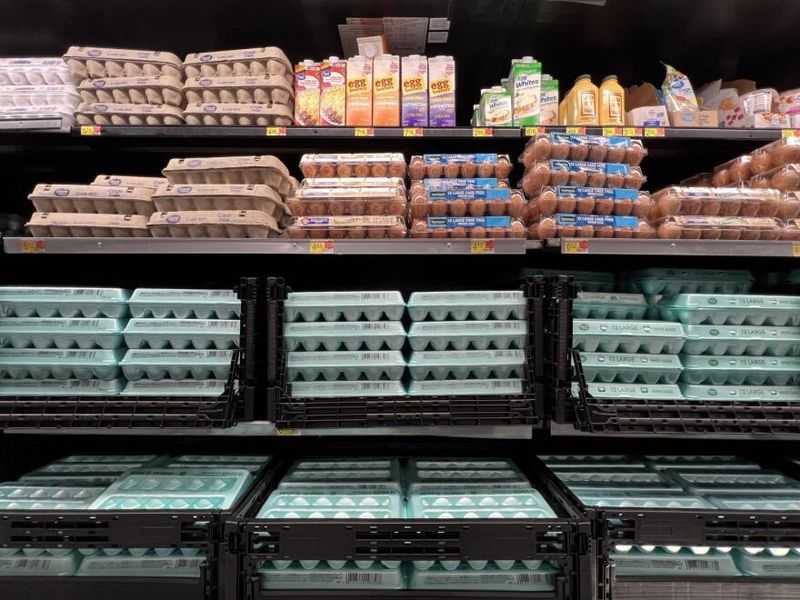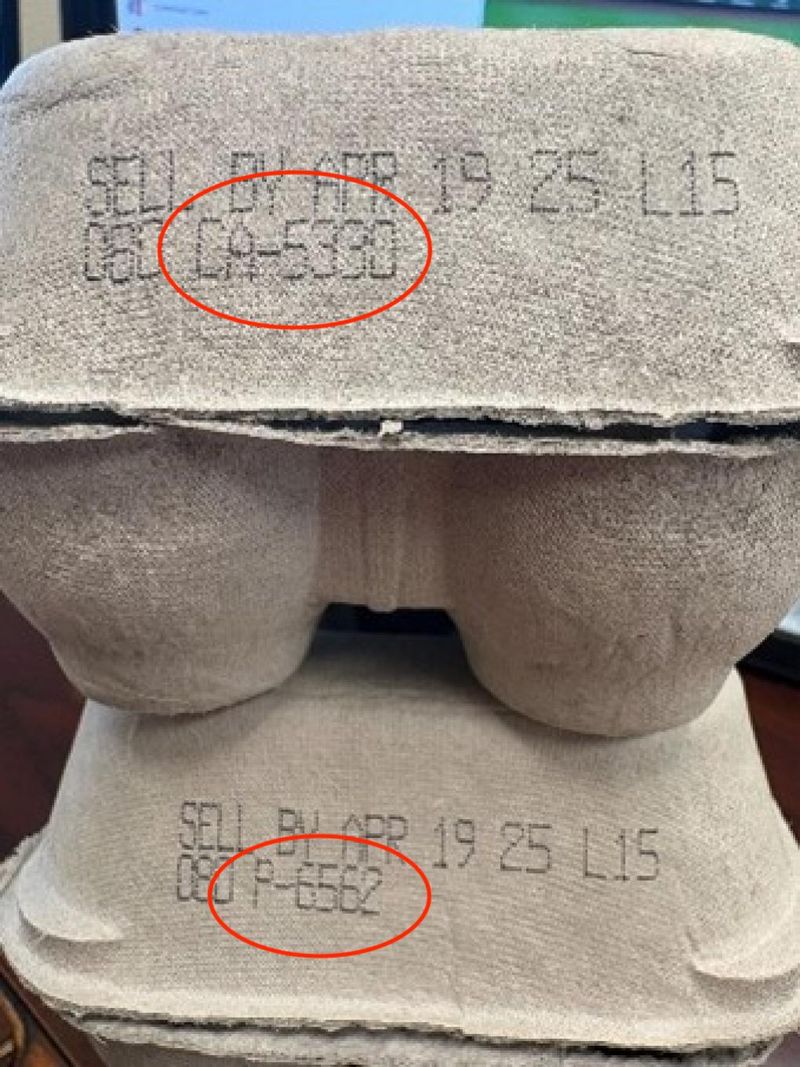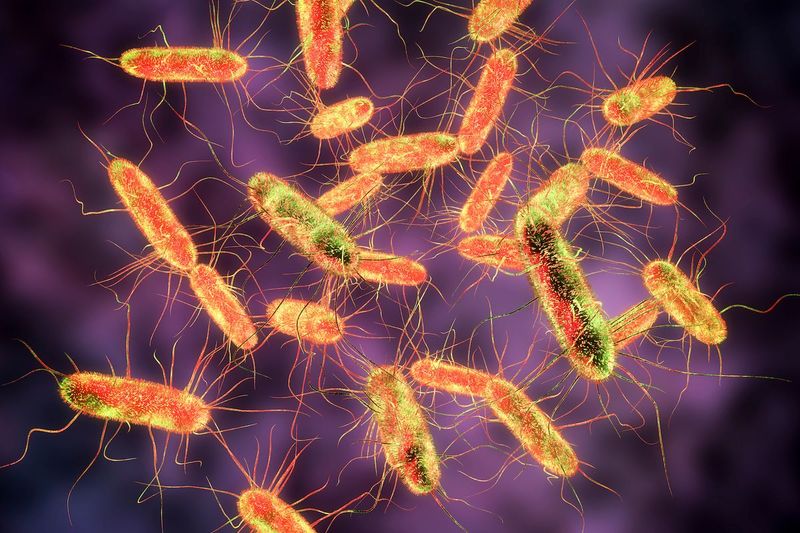FDA Issues Warning On Eggs Sold Nationwide Amid Salmonella Concerns

The FDA has issued a nationwide warning due to salmonella concerns linked to eggs sold across multiple states. The severity of this issue is underscored by the significant number of recalls and health incidents reported. Consumers are urged to take immediate precautions to ensure their safety.
1. Over 1.7 Million Dozen Eggs Recalled

Eggs, often seen as breakfast staples, have become a concern. Recently, over 1.7 million dozen eggs have been recalled nationwide. These eggs, marketed as brown cage-free and organic, were distributed between February and May 2025. The recall is a direct response to a multi-state outbreak of Salmonella Enteritidis.
Affected consumers are advised to check their egg cartons. It’s crucial to be vigilant, as this outbreak poses significant health risks. The widespread distribution emphasizes the importance of thorough checks.
Recalls like these remind us of the importance of food safety and the far-reaching impact of contaminated products.
2. 134 Illnesses and One Fatality

The number 134 might seem small in some contexts, but not when it represents lives affected by contaminated groceries. This outbreak has led to 134 reported illnesses, with 38 hospitalizations and, tragically, one death. The incident underscores the severity of food safety issues.
Salmonella Enteritidis is not just a name; it embodies a real threat. Symptoms can escalate quickly, especially in vulnerable populations.
Hospitals are on alert, and families affected face a challenging recovery. One loss of life is too many, emphasizing the need for immediate attention to food handling practices.
3. Source: August Egg Company

The August Egg Company, located in Hilmar, California, is at the center of this recall. Known for producing brown cage-free and organic eggs, the company’s reputation is now under scrutiny. As the source of this salmonella outbreak, the implications are significant.
This facility’s distribution network spans the nation, affecting countless consumers. It’s a stark reminder that even trusted brands can face crises.
The company is cooperating with authorities to address the issue. Consumers are encouraged to verify their purchases, highlighting the ongoing vigilance required in food consumption.
4. Check Your Cartons: Plant Codes P‑6562 or CA‑5330

In a world where details matter, checking the plant codes on your egg cartons can make a difference. Look for codes P‑6562 or CA‑5330, along with Julian dates between 032 and 126. These indicators mark the recalled eggs linked to the outbreak.
Consumers are urged to be thorough in examining their purchases. This simple action can prevent potential illness from contaminated eggs.
The specificity of the recall highlights the meticulous nature of food safety processes. Staying informed and cautious can protect families from severe health risks associated with salmonella.
5. Major Grocery Chains Affected

Shopping might feel routine, but recent events have added caution to the mix. Eggs from this recall were sold in major grocery chains like Walmart, Safeway, and Kroger’s Simple Truth, spreading concern across at least nine states.
This widespread distribution brings the issue closer to home for many. It’s a reminder of how interconnected food supply chains are.
Retailers are cooperating with authorities to mitigate the fallout. Consumers should remain aware of updates and adhere to recall guidelines. The incident reflects the challenges of ensuring food safety in a vast market.
6. How to Identify Safe Eggs

Selecting safe eggs requires vigilance. Start by examining the carton for freshness. Look for plant codes and expiration dates. Eggs from affected plants should be avoided.
Consider purchasing from local farms, known for better quality control. This ensures fresher eggs and reduces contamination risks.
Storing eggs properly is crucial. Keep them refrigerated to maintain safety and quality. Did you know? Fresh eggs can be tested by placing them in water; if they sink, they’re fresh. Prioritize safety by staying informed and cautious when choosing eggs.
7. Understanding Salmonella Risks

Salmonella, a common egg contaminant, poses serious health risks. It causes gastroenteritis and can lead to severe complications.
According to CDC, salmonella affects millions annually, often linked to eggs. Understanding these risks is vital for prevention.
Cooking eggs thoroughly reduces the risk significantly. Boiled or poached eggs are safer than raw. Always wash hands and surfaces after handling eggs. Fun fact: The largest salmonella outbreak in history occurred in the 1980s, linked to ice cream. Awareness and proper handling are key to minimizing health threats.
8. Tips for Cooking Eggs Safely

Cooking eggs safely is essential for avoiding salmonella. Start by boiling eggs, as high temperatures kill bacteria.
Poaching is another safe method. It involves cooking eggs in simmering water, preserving nutrients while ensuring safety.
Frying should be done thoroughly, with yolks firm. Avoid eating raw or undercooked eggs. Use pasteurized eggs for recipes needing raw ingredients. Always clean utensils and surfaces after cooking. Did you know? Eggs are more nutritious when cooked, as heat breaks down proteins for better absorption. Prioritize safety in your kitchen.
9. Recognizing Signs of Contamination

Identifying contaminated eggs is crucial for health. Check for cracks, discoloration, or unusual odors. These are signs of bacterial growth.
Eggs should have clean, uncracked shells. A foul smell indicates spoilage. Be cautious with eggs past their expiration date.
Spoiled eggs can cause food poisoning. Symptoms include nausea and diarrhea. When in doubt, discard questionable eggs. Fun fact: The “float test” can help identify bad eggs; if they float in water, they’re likely spoiled. Ensuring egg safety means being vigilant and informed about potential risks.
